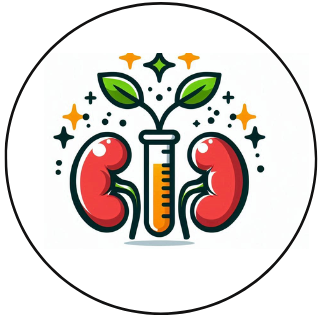The Road to Recovery After Kidney Transplant
Part 4: Navigating Dietary Changes with Support and Monitoring
Dealing with a new diet post-transplant can feel like charting a course through uncharted waters, but you’re not alone. Having the right kind of support can make this journey a whole lot smoother.
Dietitians and nutritionists are like your personal dietary GPS—knowledgeable guides who understand your needs and can tailor a plan that best fits your kidney’s new lifestyle. Working with them isn’t just about getting a diet plan; it’s about building a sustainable way of eating that matches your body’s needs.
Emotional support is just as important. Online communities and support groups are gold mines for tips, shared experiences, and encouragement when the going gets tough. They remind you that others have been where you are, and many are on the journey with you.
For those who love their tech gadgets, digital tools and apps keep you organized. Apps for meal planning, food tracking, and even hydration can keep your diet in check and avoid slip-ups. They’re the modern way to keep all your efforts in harmony with your needs.
While venturing through this dietary territory, remember it’s okay to ask for help. Building a solid support network, whether digital or personal, empowers you to make informed choices and sustain a kidney-friendly lifestyle.
Monitoring and Adjusting Your Diet Over Time
Getting used to your new diet is just the beginning. Over time, it’s essential to keep tabs on how your body responds to these changes. Regular monitoring helps tailor your nutritional needs, ensuring your kidney stays in top working condition.
Routine blood tests are your go-to indicators, showing how well your kidney processes nutrients and handles its new responsibilities. These tests can guide adjustments in your diet, helping avoid imbalances that could stress the organ.
Pay attention to how your body feels. If certain foods or portions aren’t sitting right, it might indicate a need for change. Keep notes or use a food diary app to track these reactions, providing valuable insights for tweaking your diet.
Regular medical check-ins offer reassurance and adjustments when needed. These appointments aren’t just about lab results; they’re a chance to discuss new foods you want to try or challenges you’re facing in sticking to the diet.
Your body’s needs might shift over time, influenced by factors like exercise, stress, and even seasons. Staying adaptable is key. By keeping communication open with healthcare providers, you ensure both your comfort and kidney health are maintained.
Product Recommendations for a Healthy Post-transplant Life
Giving your new kidney the support it deserves and the tools it needs can sometimes mean finding the right tools and products to make life on the road to recovery more comfortable and easier.
Let’s dig into some handy suggestions that can integrate seamlessly into your routine.
Start with kitchen gadgets and cookbooks that help make mindful eating a breeze. Water filters and hydration water bottles, for example, ensure the best quality, clean drinking water, which is vital for proper hydration and kidney function. And don’t forget meal prep sets that help you portion meals neatly without the guesswork.
Supplements and vitamins designed for transplant patients can offer extra nutritional support. Always check with your healthcare provider before introducing these into your regimen to ensure they suit your specific needs.
Food trackers and food apps aren’t just cool tech—they’re practical tools. Look for apps that track your water intake or help manage your sodium, phosphorus and potassium levels with meal ideas and grocery lists. Use a blood pressure monitor to monitor your blood pressure and keep extra stress from your new kidney.
Consider accessing these products through the links provided. They offer a convenient way to access reliable tools and support in your journey towards balanced living—plus, you might snag a deal while you’re at it.
With these product picks and tech helpers, you’re not only making daily tasks simpler but also reinforcing your dietary goals. It’s all part of nurturing your kidney’s well-being within the broader picture of a healthy, happy life.
Check out the provided links to find the tools for a happier, healthy road to recovery after your kidney transplant.
Disclaimer: Some of the links in this post are affiliate links. Purchasing through an affiliate link adds absolutely no cost to you. It may allow kidneyfreshfuel.com a small commission, which allows us to continue to bring you quality information.

